Mount Rainier National Park is centered around the mountain that gives the park its name. It’s famous for spectacular mountain views, glaciers, and the millions of wildflowers that burst into bloom on the subalpine meadows in summer.
Would you like to learn more about this wonderful park? Let’s take a look at some interesting facts about Mount Rainier National Park.
If you’re planning to visit Mount Rainier National Park by yourself, make your planning easy and stress free with a detailed itinerary. I have 1-, 2- and 3-day itineraries for Mount Rainier National Park that include all the park highlights, give you choices based on your preferred activity level, and take all the stress out of planning your trip.
No time right now to discover these fun facts about Mount Rainier National Park? Pin It and save it for later:
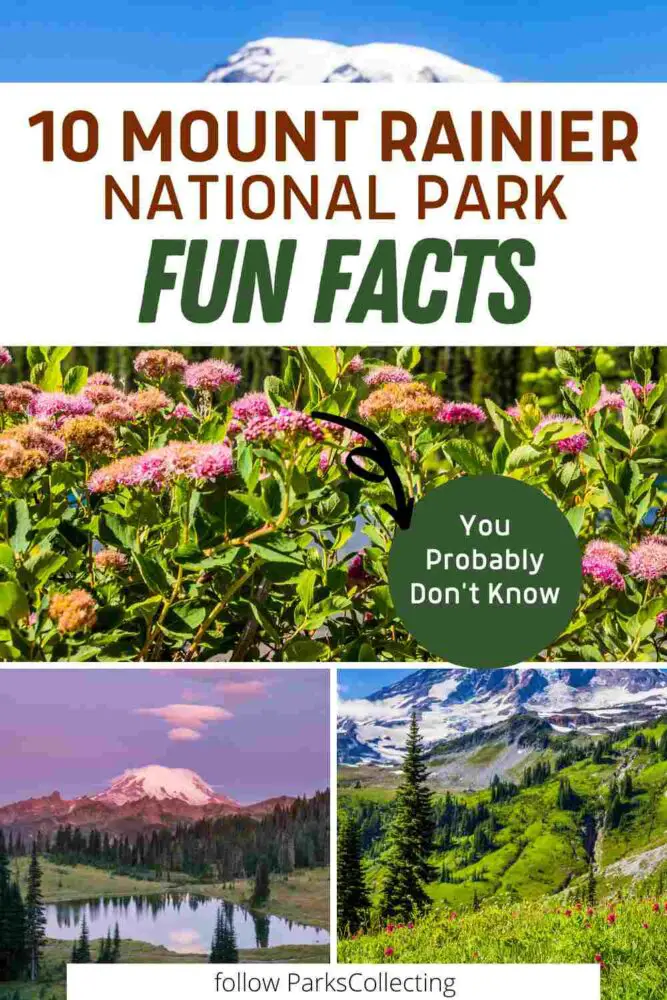
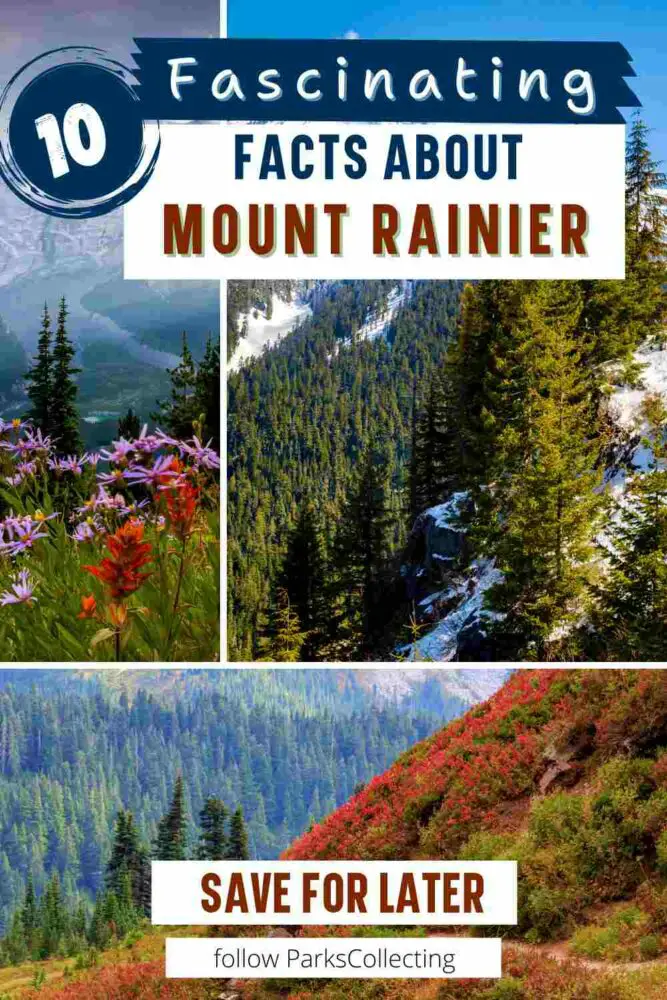
Subscribe to daily national parks planning tips, travel inspiration and trip ideas and I’ll send you a free PDF of this Guide to
10 Fun Facts About Mount Rainier National Park
Table of Contents
Basic Mount Rainier Facts
⭐ Location: Washington
⭐ Size: 236,381 acres
⭐ Number of Visitors each Year: 1.67 million
⭐ Annual Rainfall: 42.8 inches
⭐ Mount Rainier Height: The height of Mt Rainier is 14,411 feet
⭐ Lowest Elevation: 1,600 feet (in the south eastern corner of the park)
⭐ Date it Became a National Park: March 2, 1899
10 Fun Facts About Mount Rainier National Park
Here are 10 fun facts about Mt Rainier National Park that you never knew you needed to know!
1. Mt Rainier is the tallest mountain in the state of Washington

Rainier National Park is dominated by the towering figure of Mount Rainier. How tall is Mount Rainier? It’s 14,411 feet, making it the highest mountain in the state of Washington and the Cascade Range.
On a clear day, the mountain is visible from as far away as Seattle, serving as a landmark for the surrounding area. Its height is so significant that it creates its own weather patterns, often drawing clouds to its peak even on clear days.
The prominence of Mount Rainier is not just in its height but also in its role as an icon of the Pacific Northwest. The mountain is featured on license plates, company logos, and is a source of inspiration for artists and photographers.
2. Mt Rainier is the most glaciated peak in the contiguous United States
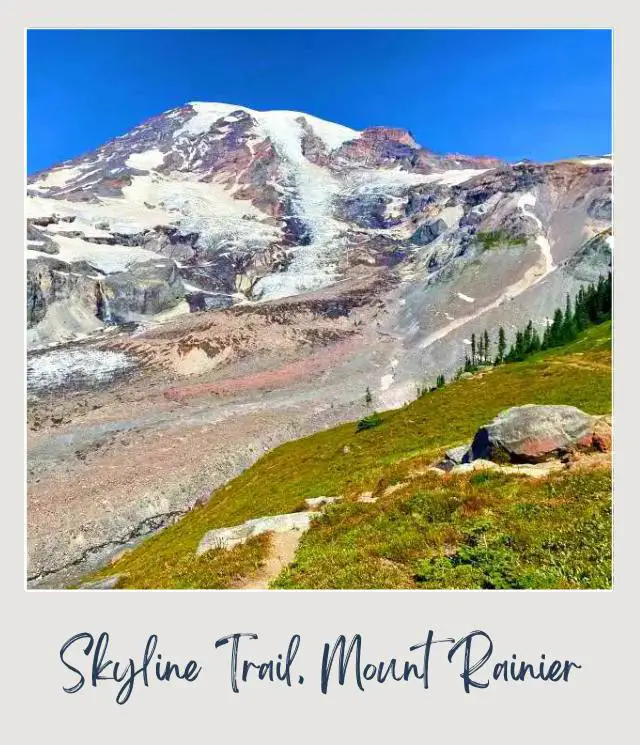
With 25 named glaciers and numerous smaller unnamed snow fields, the park holds the most extensive glacial system in the contiguous United States.
The glaciers are not only incredible to see, they are also critical to the ecosystem. They provide a slow release of water throughout the seasons, supporting the rivers and wildlife within the park.
Several of these glaciers are accessible to visitors, with some of the most popular being the Emmons Glacier (near Sunrise), the Nisqually Glacier (near Paradise), and Carbon Glacier (near Carbon River).
The Emmons Glacier is the largest glacier in the contiguous United States by area (over 4 miles). The Nisqually Glacier is the most seen glacier in the park, because it’s so close to the Paradise area. Carbon Glacier is the third largest glacier on Mount Rainier but takes pride of place as having the lowest terminus of any glacier in the contiguous United States.
The bad news: the glaciers, like so many, are receding! Scientists actively study these glaciers to understand climate change’s impacts, making the park a center for environmental research.
3. Mount Rainier is an active volcano
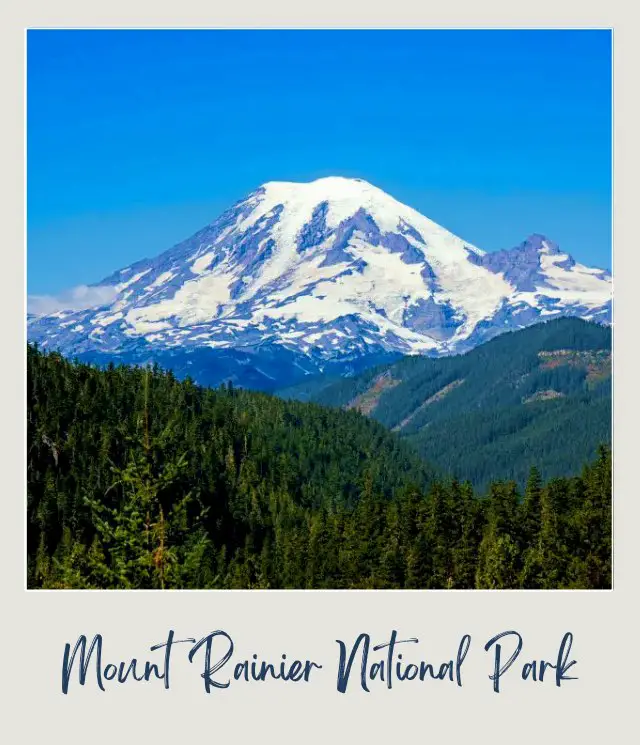
Is Mount Rainier a volcano? Yes, Mount Rainier is not just a picturesque mountain peak; it’s an active stratovolcano, part of the Cascade Volcanic Arc.
This geological giant is composed of layers of lava and ash, characteristic of stratovolcanoes, which are known for their explosive eruptions and high-viscosity lava that hardens quickly. Past eruptions have sculpted its now-iconic conical shape.
Mount Rainier is one of five active volcanoes in the Cascade Range. While it’s been a millennium since it’s last eruption (though there were signs of activity as recent as 1894), its proximity to the densely populated Seattle area and the substantial glacial ice it holds make it one of the most dangerous volcanoes in the world.
4. The 93-mile Wonderland Trail completely encircles the mountain

You can hike on one trail all around Mount Rainier. If you have about 10 – 14 days to spare.
The 93-mile Wonderland Trail is over a century old and started as a route for patrol officers and firefighters.
Today, the loop takes hikers through lowland forests, past rivers and waterfalls, across subalpine wildflower meadows and stark glacial moraines, and up into high alpine areas with stunning views of the mountain. The trail has numerous camps along its length.
If this seems a bit too much, never fear. With over 260 miles of maintained trails in the national park, there are plenty of shorter options available.
➡️ READ MORE: Best hikes in Mount Rainier National Park
5. The wildflowers in the park are iconic
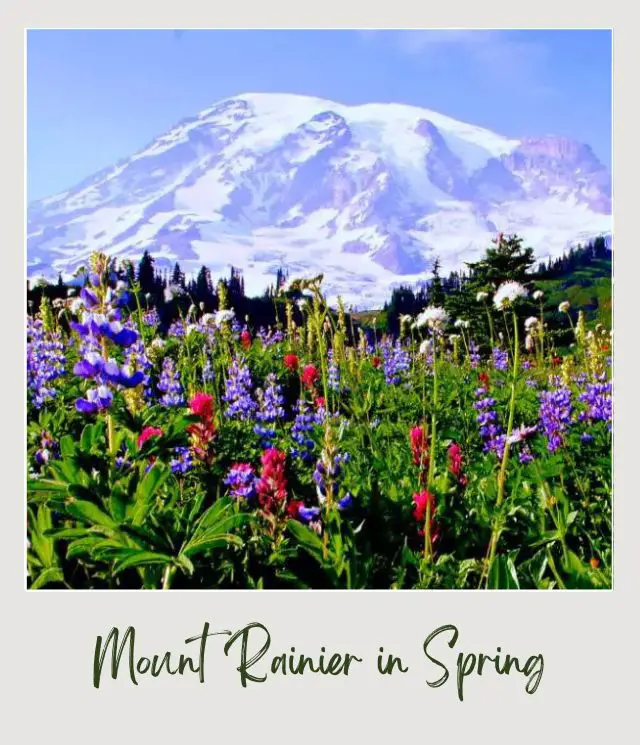
Each summer, Mount Rainier National Park transforms into a riot of color as wildflowers bloom across its meadows. The Paradise area of the park is particularly well-known for this annual spectacle, where the meadows are carpeted with lupines, paintbrushes, and other wildflowers. The bloom typically peaks in July and August, depending on the snowmelt.
The wildflower bloom at Mount Rainier is so noteworthy that it has become a symbol of the park. John Muir once said that Mount Rainier was “the most luxuriant and most extravagantly beautiful of all the alpine gardens I ever beheld in all my mountain-top ramblings.”
The park offers a range of programs and guided walks to educate visitors about the wildflowers and the importance of preserving these delicate ecosystems.
To protect these fragile ecosystems, visitors are urged to stay on designated trails.
6. Vancouver named Mount Rainier after his friend
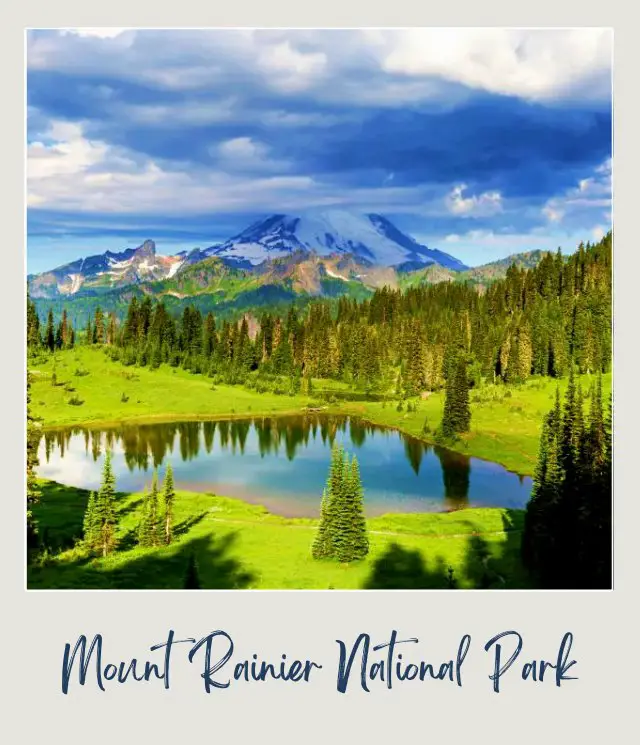
How did Mt Rainier get its name? In 1792, Captain George Vancouver of the Royal Navy took an expedition that charted the northwestern Pacific Coast regions of North America. He saw Mount Rainier in the distance and named the mountain in honor of his friend, Rear Admiral Peter Rainier (how’s that for nepotism!).
The name ‘Rainier’ itself is of German origin, meaning ‘deciding warrior.’
It’s interesting to note that the cities of Vancouver in British Columbia and Washington state are named after George Vancouver, who also named other significant landmarks like Mount Baker and Mount Hood after British admirals.
➡️ READ MORE: Captain George Vancouver in Alaska and the North Pacific by James K. Barnett.
7. The first recorded climb Mount Rainier was in 1870
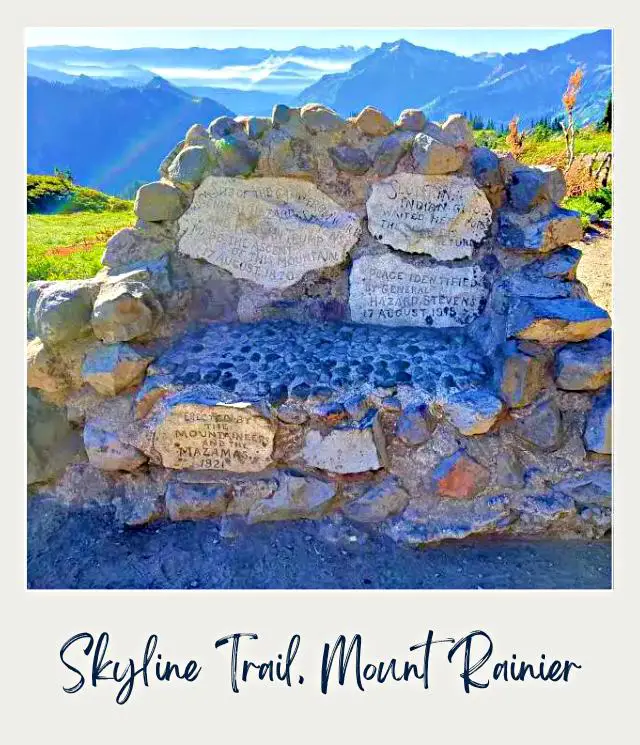
Climbing Mount Rainier is a formidable challenge, requiring significant mountaineering skills and experience due to its treacherous conditions and high altitude.
The first recorded ascent of Mount Rainier was by P.B. Van Trump and General Hazard Stevens on August 17, 1870. They were led to a base camp near Paradise by a native guide known as Sluiskin.
There’s a memorial to their success on the Skyline Trail. Stevens and Van Trump camped at this point before they made their ascent to the summit of the Mount Rainier. They were planning to do it in a day, but ended up overnighting in a cave near the summit before returning. The inscriptions on the monument read:
Site of the camp from which General hazard Stevens and P B Van Trump made the ascent of this mountain 17 August 1870
Sluiskin Indian guide waited here for the climbers return
Place Identified by General Hazard Stevens 17 August 1918
Erected by the Mountaineers and the Mazamas 1921
➡️ READ MORE: My guide to hiking the Skyline Trail
8. An Air Force Lieutenant landed a plane on the summit
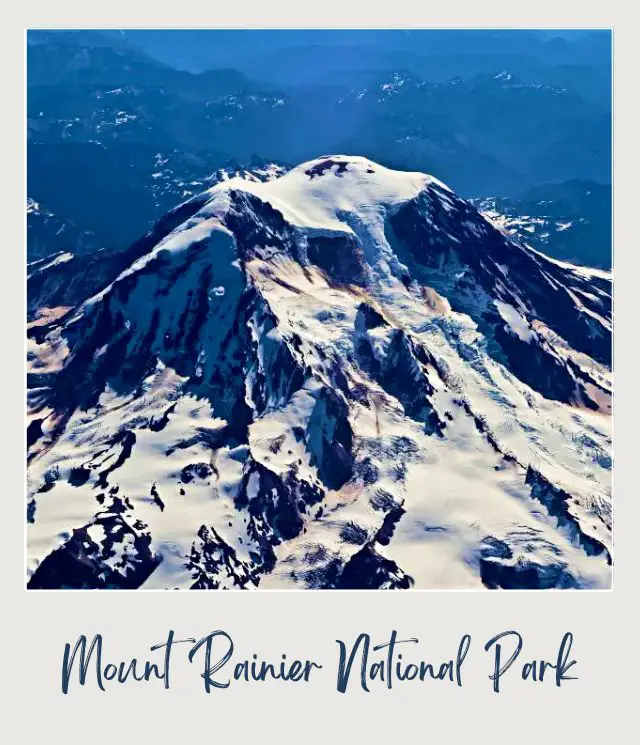
In a daring – and somewhat stupid – feat on April 12, 1951, Air Force Lieutenant John W. Hodgkin landed his ski-equipped plane on the summit of Mount Rainier!
It set a world record for high-altitude landing but unfortunately, when Hodgkin tried to take off, his plane wouldn’t start again and he was forced to spend a freezing night at 14,410 feet.
The following morning, before a rescue team could reach him, Hodgkin ingeniously (or impatiently) slid his plane down the Nisqually Glacier to the frozen Mowich Lake, where he managed a successful landing.
After refueling with gasoline dropped by an Air Force plane, he flew back to Spanaway.
Despite his safe return, Hodgkin faced legal repercussions for landing a private aircraft without permission in a national park, resulting in a $350 fine and a 6-month commuted jail sentence.
9. The park was the United States’ fifth national park
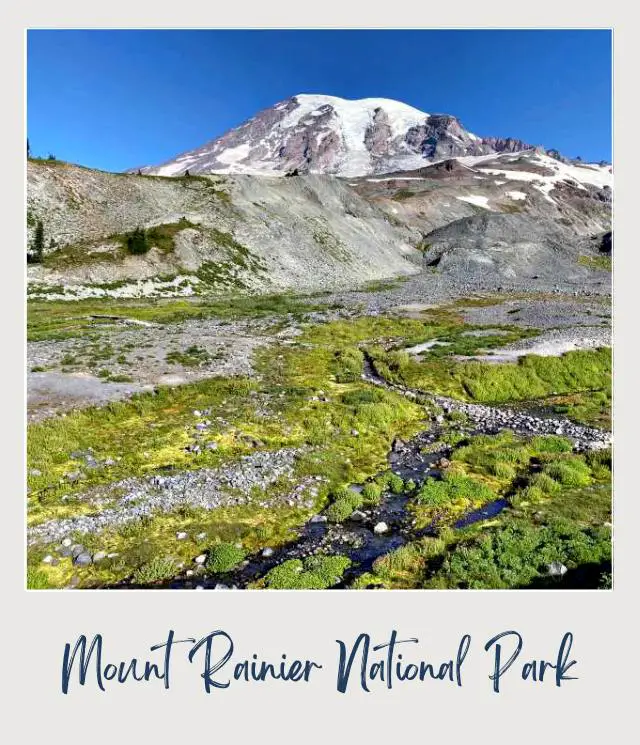
How old is Mt Rainier?
Mount Rainier National Park has the distinction of being the fifth oldest national park in the United States. It was established in March 1899 by President William McKinley. Its creation marked the first time a national park was formed from a national forest.
In its early years, the focus was on attracting visitors, which led to the construction of hotels and roads. However, as environmental science progressed, park management practices evolved to prioritize the preservation of natural resources. Notable figures like naturalist John Muir and geologist Bailey Willis were instrumental in advocating for the park’s establishment, with Willis poetically describing it as “an arctic island in a temperate sea.”
10. Walt Disney honeymooned at Mount Rainier

Walt Disney, the iconic figure behind the Disney empire, chose Mount Rainier National Park as the destination for his honeymoon with Lillian Disney in July 1925. Although their stay was brief, lasting only a day, the choice of such a picturesque and tranquil setting for the start of their married life together highlights the enduring allure of Mount Rainier National Park as a place of romance and beauty.
The park’s enchanting landscape has undoubtedly inspired countless visitors, including visionaries like Disney, who may have found elements of magic and wonder within its boundaries that paralleled the enchantment of his own animated creations.
More Information About Mount Rainier National Park
Are you feeling inspired to visit Mount Rainier National Park? Start planning your trip now with these guides:
⭐ Mount Rainier National Park Guide
⭐ Mount Rainier National Park Itineraries
⭐ Planning a Trip to Mount Rainier National Park: 7 Mistakes to Avoid
⭐ How many days in Mount Rainier National Park do you need?
⭐ Best Hikes in Mount Rainier National Park
⭐ The Skyline Trail Guide
⭐ How To Get to Mount Rainier National Park
⭐ All the Airports Near Mount Rainier National Park
⭐ The Closest Airport To Mount Rainier National Park
⭐ Best Time To Visit Mount Rainier National Park
⭐ Visiting Mount Rainier National Park: What To Expect Throughout the Year
⭐ 10 Tips For Visiting Mount Rainier National Park
Do you have any other fun facts about Mt Rainier National Park to share? I’d love to hear them. Join my private Facebook group National Parks Collectors and comment and let me know (you can also pick up extra planning tips, share your photos and stories with other national park lovers and more).
Subscribe to daily national parks planning tips, travel inspiration and trip ideas and I’ll send you a free PDF of this Guide to
10 Fun Facts About Mount Rainier National Park
If you liked these fun facts, Pin It to your Mount Rainier National Park board!


💡 Are you just starting to think about taking a national parks trip? Get Inspiration
‼️ Are you looking for helpful tips for visiting US national parks? Read articles that share useful tips on a range of national-park related issues
💻 Are you starting to plan a trip to Mount Rainier National Park? Read my Guide to Mount Rainier National Park
📋 Do you want a ready-made super detailed plan for your trip to Mount Rainier? Get a detailed 1 – 3-day Mt Rainier National Park Itinerary
💲 Are you ready to book your trip? Use these Planning and Booking Resources
📖 Do you want to read a book about US national parks? Check out my Recommended Reading Lists
About the Author
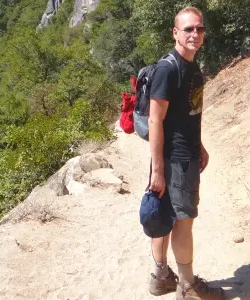
James Ian is a national park, camping and hiking expert.
He has dedicated his life to travel, visiting more than 80 countries, all 7 continents and most of the national parks in the United States. With over 35 years experience in the travel industry, James has worked on cruise ships, at resorts and hotels, and as a travel planner who’s helped hundreds of people plan successful trips to US national parks.
Based on his experience visiting our national parks multiple times, in-depth research and expertise as a travel planner, James has published detailed itineraries for many of the major national parks in the US. These itineraries, as well as in-depth park guides, and other resources will help you have your own incredible trip to US national parks without stress and hassle.
As a national park expert, James has contributed to many publications, including USA Today, Newsweek, Time Business News, Savoteur, Best Trip, and Wired.
I’m a member of the Amazon Services LLC Associates Program. As an Amazon Associate I earn from qualifying purchases.
